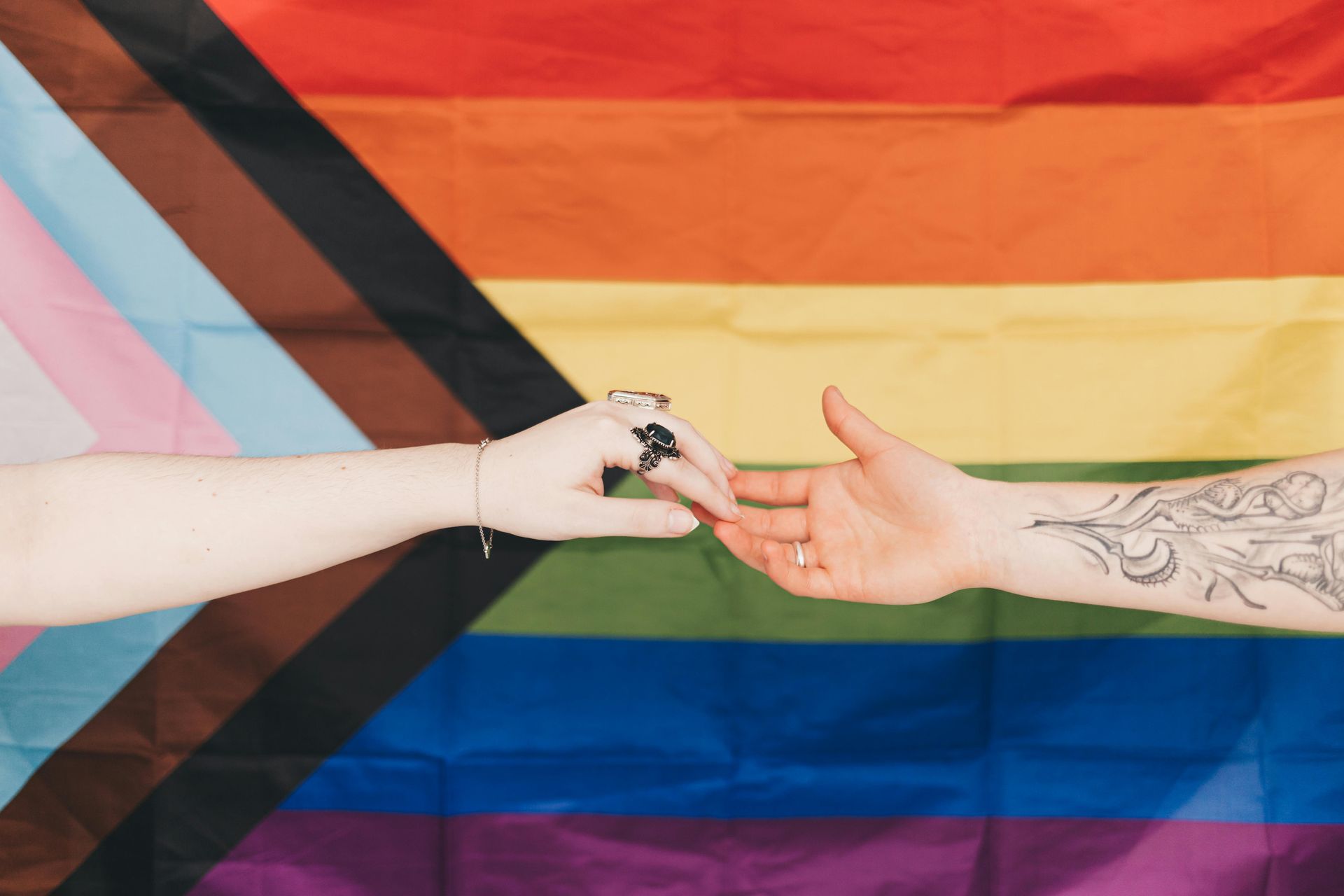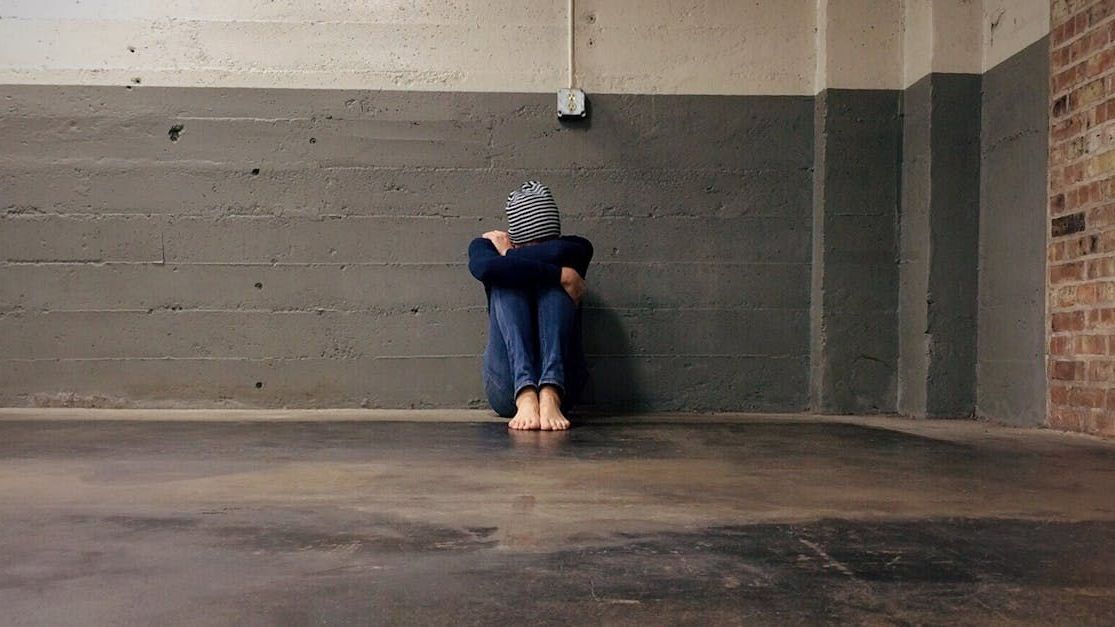Understanding the T Visa: Protection and Path to Justice
Kris Quadros-Ragar • July 11, 2024
The T visa is a nonimmigrant visa designed specifically for victims of severe forms of human trafficking. It provides recipients with temporary legal status in the United States, allowing them to live and work in the country for up to four years. This visa not only ensures their safety but also grants access to essential public benefits such as housing assistance and medical care.
In the fight against human trafficking, the T visa stands as a crucial tool, offering hope and legal protection to victims who have endured unspeakable hardships. Established under the Victims of Trafficking and Violence Protection Act of 2000 (VTVPA), the T visa aims to shield individuals trafficked into the United States from further exploitation while empowering them to assist law enforcement in prosecuting their traffickers.
To establish eligibility for a T visa, the applicant must demonstrate that they:
1. have been a victim of a severe form of trafficking in persons;
2. are physically present in the United States, American Samoa, or at a U.S. port of entry on account of such trafficking;
3. have complied with any reasonable request for assistance in a federal, state, or local investigation or prosecution into acts of trafficking or the investigation of a crime where acts of trafficking are at least one central reason for the commission of that crime, except when the applicant was under 18 years of age at the time of victimization or is unable to cooperate with a request due to physical or psychological trauma;
4. would suffer extreme hardship involving unusual and severe harm upon removal from the United States; and
5. are admissible to the United States or qualify for a waiver of any applicable grounds of inadmissibility.
The 2021 revisions to the USCIS Policy Manual, particularly in Volume 3, Part B – Victims of Trafficking, have clarified the broad definition of trafficking. This has facilitated more successful T visa cases without requests for evidence or the need for litigation.
Application Process
Applying for a T visa involves submitting a comprehensive application package to the United States Citizenship and Immigration Services (USCIS). The core of the application is the Form I-914, which includes:
- Detailed personal information and history of trafficking victimization.
- Supporting documentation such as police reports, medical records, and witness affidavits.
- Evidence of cooperation with law enforcement.
- Proof of extreme hardship if deported.
Once USCIS receives the application, they conduct a thorough review to determine eligibility for the T visa. Upon approval, T visa holders receive temporary legal status in the U.S. for up to four years. During this period, they can rebuild their lives with access to crucial resources and the ability to work legally.
Importantly, after three years of continued presence in the U.S. under T visa status, individuals may apply to adjust their status to become lawful permanent residents (green card holders).
Navigating the complexities of the T visa application process requires legal expertise and compassionate support. At Santos Lloyd, our dedicated team of attorneys specializes in immigration law, with a focus on assisting victims of human trafficking. If you believe you have been a victim of human trafficking or would like a comprehensive screening, please contact our office – we are eager to help you!
This blog is not intended to be legal advice and nothing here should be construed as establishing an attorney client relationship. Please schedule a consultation with an immigration attorney before acting on any information read here.
Kris Quadros-Ragar
Similar Posts

As of April 1, 2024, USCIS has instituted an inflation adjustment to immigration application filing fees . These fee increases apply to a majority of the different application types, including family-based, non-immigrant, and immigrant petitions. As a part of these fee increases, USCIS has also instituted a new program designed to provide funding to the United States’ Asylum Program, in order to better address the massive backlog of pending asylum claims currently waiting to be adjudicated. Unfortunately, these changes have led to confusion among petitioners for when they are required to pay the Asylum Program Fee, and when they may qualify for a 50% or complete exemption from the fee. The Asylum Program Fee is required to be submitted by employers in all I-129 and I-140 petitions filed on or after April 1, 2024. The Asylum Program Fee is $600, however, certain exemptions apply . Small employers , defined as having 25 or fewer total employees, qualify for a reduction of the Asylum Program Fee, but are still required to submit a reduced fee of $300. Individual petitioners, or self-petitions, such as in the case of an EB-2 National Interest Waiver, are considered small employers for the purpose of the Asylum Program Fee and are also required to submit the reduced $300 fee. Non-profit organizations are exempted from the Asylum Program fee and are not required to submit any additional funds with the ordinary I-129 or I-140 filing fee. In addition, non-profits qualify for a 50% reduction of the ordinary filing fee in certain types of applications, bringing the overall filing fee burden down substantially for non-profit organizations. With these changes to USCIS’ filing fee schedule, USCIS is hoping for significant improvements to efficiency and processing for pending asylum applicants. If you or your petitioning organization need any assistance in preparing an application for an immigration benefit, including ensuring proper compliance with the new fee requirements, our office is ready and waiting to help!

The Violence Against Women Act also known as VAWA allows spouses, parents, and children of U.S. citizens and Lawful Permanent Residents (LPRs) who have been subjected to abuse to apply for immigration relief. A person may also be eligible to apply for VAWA if his/her U.S. citizen or LPR spouse subjected his/her child to battery or extreme cruelty. A person who is eligible for VAWA can “self-petition,” for the relief. By self-petitioning, the person can petition himself or herself without the abuser’s knowledge, consent, or participation in the process. Here is a brief overview of the VAWA eligibility requirements: 1. Being subjected to battery or extreme cruelty by a U.S. citizen or LPR spouse, parent, and/or child. Battery or extreme cruelty can be physical abuse, violent acts or threats of violence, sexual abuse, verbal abuse and degradation, emotional abuse, isolation, intimidation, economic abuse, coercion, or threats to take away children or to call immigration. 2. Residing or have resided with the abusive U.S. citizen or LPR spouse, parent, or child. 3. As a self-petitioning spouse of an abusive U.S. citizen or LPR, the self-petitioner must also demonstrate that he/she entered the marriage in good faith. The marriage must still be valid or if divorced, the marriage must have ended less than two years prior to filing the VAWA petition. 4. The self-petitioner must demonstrate he/she is a person of good moral character. To determine whether a person has good moral character, immigration looks at the self-petitioner’s criminal and immigration history or lack of. Note, battered spouses or children of U.S. citizens or LPRs, who are in removal proceedings may also be eligible for VAWA relief through cancellation of removal. If you believe you may qualify for VAWA or if you have any questions, please schedule a consultation with one of our experienced attorneys and we will be more than happy to assist you.

The Violence Against Women Act (VAWA) protects immigrants who have been abused by their U.S. citizen or lawful permanent resident (AKA Green Card holder) relative. VAWA allows you to independently petition for yourself without your abuser’s knowledge, consent, or participation in the process. This allows survivors to seek both safety and independence from their abusers.

On March 31, 2024, U.S. Citizenship and Immigration Services (USCIS) implemented a policy update that limits gender marker selections on all immigration forms and systems to two biological sexes: male and female. This change eliminates the option for applicants to select a non-binary or “X” gender marker—an option that had previously been permitted on some forms. While USCIS emphasizes that this update does not change who qualifies for immigration benefits, it may significantly impact how certain applications—particularly asylum claims based on gender identity-related persecution—are understood and evaluated. What Has Changed? Under the revised policy, applicants may now only choose “Male” or “Female” when completing USCIS forms. The ability to select a non-binary or third-gender option is no longer available. Applicants may still request to change their gender marker with USCIS, but only within the male/female binary. Supporting documentation, such as medical or legal records, is not required to make the change. This means that transgender individuals can still align their gender marker with their identity—if it falls within the two binary categories—but non-binary individuals are no longer represented. The change follows guidance issued by the federal Office of Management and Budget (OMB), which called for greater consistency in the collection of sex and gender data across federal agencies. Impact on Asylum Applicants This policy update is especially important for individuals applying for asylum based on persecution related to their gender identity. Under U.S. immigration law, asylum is available to people who have suffered persecution—or fear future persecution—based on their membership in a “particular social group.” This includes people targeted for being transgender, gender non-conforming, or otherwise not aligning with socially expected gender roles in their home country. Although the legal standard for asylum remains unchanged, the removal of the non-binary gender marker could make it harder for some applicants to clearly present and document their identity. In asylum cases, credibility and clarity are crucial. The ability to accurately reflect one’s gender identity on official forms can play an important role in establishing the foundation of a persecution claim. Now, applicants who identify as non-binary or outside the traditional male/female categories may be forced to select a gender that does not align with their lived experience. This could lead to confusion in their case file or require additional explanation during interviews or hearings. This policy could weaken the strength of some asylum claims—not because the underlying facts have changed, but because the official forms now fail to reflect the applicant’s true identity. For example: A non-binary person applying for asylum after being targeted in their home country may now have to select “Male” or “Female” on their asylum application, despite not identifying as either. This mismatch may lead adjudicators to question the applicant’s identity, possibly weakening the strength of the claim or requiring added clarification and documentation. In defensive asylum cases—where applicants are in removal proceedings—such inconsistencies could create unnecessary hurdles and complicate the evidentiary presentation. What Can Applicants Do? Despite the change, individuals can still pursue asylum based on gender identity. The underlying eligibility criteria remain the same. However, applicants should be prepared to clearly explain any differences between their stated identity and the gender marker required on USCIS forms. Applicants are encouraged to: Include a personal declaration explaining their gender identity in detail and how it relates to their fear of persecution. Provide evidence such as affidavits, country condition reports, or expert testimony that supports the claim. Work with an experienced immigration attorney who can help present the claim effectively and prepare for any questions that might arise from the new form limitations. The new USCIS policy on gender markers may seem like a technical update, but for asylum seekers fleeing gender-based persecution, it has real implications. While individuals are still legally eligible to seek protection, the limitation to binary gender options could make it more difficult to fully and clearly present their case. If you or someone you know is facing immigration challenges related to gender identity—or is concerned about how this policy may impact an asylum claim—please contact Santos Lloyd Law Firm to schedule a consultation with one of our experienced immigration attorneys. We’re here to help ensure your voice is heard and your case is handled with the care and expertise it deserves.

In 2025, the immigration landscape continues to shift under the weight of national security concerns, ushered in by Executive Order “ Protecting the United States From Foreign Terrorists and Other National Security and Public Safety Threats. ” This directive tasks federal agencies—including the U.S. Department of State—with implementing enhanced screening and vetting protocols for all foreign nationals seeking visas or other immigration benefits. The result? A dramatically intensified vetting process, along with mounting concerns from immigrants, attorneys, and civil liberties advocates alike. Traditionally, airport security focused on verifying travel documents and screening for prohibited items, while consular officers assessed the legitimacy of visa petitions and the admissibility of applicants. Extreme vetting, however, represents a significant shift toward a far more invasive and comprehensive investigative process. It now includes detailed background checks, biometric verification, digital forensics, and expansive scrutiny of an applicant’s online presence and criminal or financial records. Since President Trump’s second term began in January 2025, the implementation of extreme vetting has expanded rapidly. Today, border screenings go far beyond routine document checks, encompassing a full-scale evaluation of a traveler’s digital life. This pivot reflects the administration’s intensified focus on national security, but it has also triggered urgent discussions about privacy, due process, and the fairness of modern immigration enforcement. At U.S. ports of entry—especially airports—noncitizens are now subject to rigorous and invasive procedures, including: Inspection of cell phones, laptops, and other devices (including deleted content) Review of social media activity on platforms like TikTok, Instagram, and X (formerly Twitter) Biometric scanning, including fingerprinting and facial recognition These measures are no longer confined to travelers from high-risk countries. In practice, extreme vetting applies broadly across all nationalities, and increasingly affects lawful permanent residents as well. For noncitizens, this new landscape introduces a heightened level of uncertainty and vulnerability. Delays at U.S. consulates for visa issuance or renewal are becoming routine. Travelers must now be acutely aware of these changes, and those attending consular interviews or seeking visa renewals should be prepared to provide additional documentation verifying their maintenance of status, compliance with visa conditions, and the bona fide nature of their visa applications. It is critical to organize supporting materials in advance and be ready to answer questions about employment, education, travel history, and online activity. As the U.S. government continues to expand its use of data-driven risk assessment tools, travelers must adapt to a new normal, one where preparation is essential to navigating the immigration system without disruption.

For international business owners and entrepreneurs engaged in cross-border trade with the United States , the opportunity to expand operations and establish a physical presence in the U.S. may be more accessible than expected. The E-1 Treaty Trader Visa is specifically designed to facilitate this type of business activity and offers a strategic pathway for qualifying individuals to live and work in the United States while managing or developing trade relationships. While 2025 has brought a trend of changes in immigration policy, the E-1 visa continues to stand out as a viable and welcoming option . Despite increased scrutiny across various immigration categories, this visa remains suitable for those involved in consistent, qualifying trade with the U.S. Its structure and purpose align well with current business realities, making it a stable choice even amid policy shifts. The E-1 visa is available to nationals of countries that maintain a treaty of commerce and navigation with the United States . To qualify, applicants must demonstrate that they are engaged in substantial trade—defined as a continuous flow of sizable international transactions—primarily between their home country and the U.S. Unlike investment-based visas, the E-1 visa does not require a fixed monetary threshold. Instead, it emphasizes active commercial exchange, such as the regular transfer of goods, services, or technology. This visa is applicable across a wide range of industries , including but not limited to manufacturing, logistics, professional services, consulting, finance, tourism, and technology. If more than 50% of your international trade is with the United States, and the business activity is consistent and well-documented, the E-1 visa may be a strong fit for your current business model. In addition to its flexibility, the E-1 visa is renewable as long as the trade activity continues. It also extends benefits to eligible family members: spouses and unmarried children under 21 may accompany the principal visa holder, and spouses are eligible to apply for U.S. work authorization, offering added support and financial opportunity for the family. This visa category is particularly well-suited for business professionals who are already operating in international markets and looking to formalize or expand their presence in the U.S. It rewards active engagement, proven commercial performance, and long-term trade partnerships. If you are currently engaged in trade with the United States and are considering expanding your business operations, the E-1 Treaty Trader Visa may provide a clear and effective route forward. Our attorneys at Santos Lloyd Law Firm are here to help you assess your qualifications and guide you through each stage of the process with clarity, strategy, and confidence.




